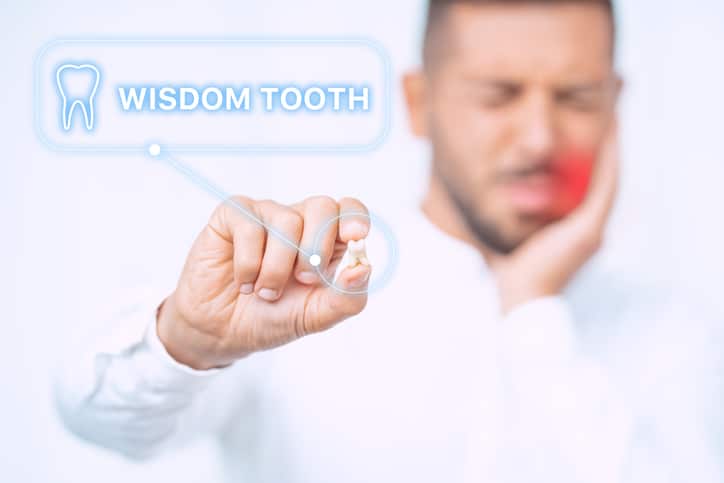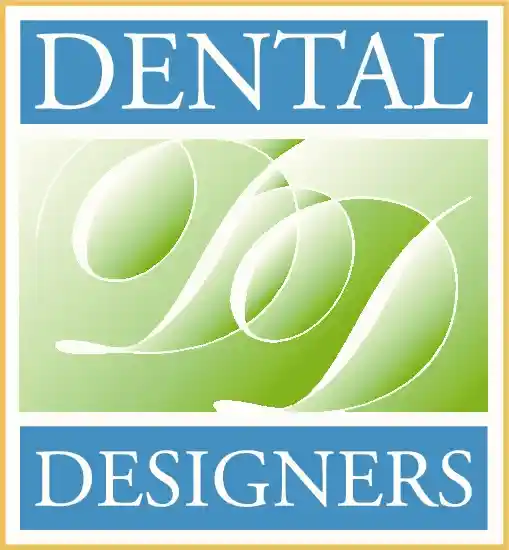Wisdom Teeth Removal in Rockford
Are you experiencing pain or discomfort in the back of your mouth? This could be a sign that your wisdom teeth are causing problems. Wisdom teeth are the last set of molars to emerge, and they usually appear between the ages of 17 and 25. Not everyone needs to remove their wisdom teeth. There are several reasons why it may be necessary.

When Do I Need To Remove My Wisdom Teeth
If your wisdom teeth are causing strange sensations, pain, discomfort, or infection, your dentist may recommend that you have them removed. Wisdom teeth can cause a variety of problems: overcrowding, impaction, and infection. In some cases, they can even damage adjacent teeth or cause cysts or tumors. However, not everyone needs to have their wisdom teeth removed, and your dentist will evaluate your individual situation to determine the best course of action.
Dentist in Rockford View on Wisdom Teeth
As teeth grow and develop throughout our lives, the emergence of wisdom teeth can sometimes lead to complications, making their removal a necessary procedure.
Here are 7 signs you may need to consider wisdom teeth removal for a healthier, pain-free smile. Dentists and oral surgeons often recommend wisdom teeth removal when these
Molars cause problems such as impacted teeth or growing at an angle, potentially damaging the jaw and pushing other teeth out of place. Wisdom teeth can grow in the upper jaw and damage your gums, leading to sinus pressure and persistent pain right where you least want it.
Bad breath may affect family smiles, which could be caused by oral cysts forming around an impacted tooth socket. This is one of the most common reasons why individuals may need wisdom teeth removal. To keep your wisdom teeth from causing further complications, it’s essential to recognize the signs you need wisdom teeth removal and consult with dental professionals. Timely intervention can prevent more severe consequences, such as damage to the jaw and the displacement of other teeth, ensuring that your family’s smiles remain healthy and radiant.
Key Takeaways
- Wisdom teeth can cause pain, discomfort, and infection.
- Not everyone needs to have their wisdom teeth removed.
- Your dentist will evaluate your individual situation to determine the best course of action.
What are Wisdom Teeth?
Wisdom teeth, also known as third molars, are the last set of molars to grow in the back of your mouth. They usually appear in your late teens or early twenties, and some people may not even develop them.
Why Do Wisdom Teeth Need to be Removed?
Wisdom teeth can cause a variety of problems with your dental health. Since they are the last teeth to come in, there may not be enough room for them to grow properly. As a result, they can become impacted, meaning they get stuck in the gum tissue or bone. Impacted wisdom teeth can cause pain, swelling, and infection. They can also push other teeth out of place and cause damage to nearby teeth and gums.
7 Signs You May Need Your Wisdom Teeth Removed
Here are seven signs you may need to consider a wisdom tooth extraction:
- Pain in the back of your mouth
- Swollen or tender gums
- Difficulty opening your mouth
- Bad taste in your mouth
- Sinus pain or pressure
- Nearby teeth shifting or crowding
- Wisdom teeth partially emerge or break through the gum
If you are experiencing any of these symptoms, talk to your dentist or oral surgeon about getting your wisdom teeth removed. Even if your wisdom teeth are not causing any problems now, they may cause problems in the future and may need to be removed if they’re crowding nearby teeth or causing other issues.
Have Your Wisdom Teeth Checked
It’s important to check your wisdom teeth regularly to ensure they’re not causing any problems with your dental health. Your dentist may recommend getting your wisdom teeth pulled if they’re causing problems or if there isn’t enough room for them to grow. Oral surgeons recommend removing wisdom teeth before age 25, as the roots are not fully formed and the bone is less dense, making the procedure easier and the recovery faster.
If you’re unsure whether you need your wisdom teeth removed, talk to your dentist about your options. They can help you make an informed decision about the best course of action for your dental health. Remember removing your wisdom teeth is a common procedure that can help keep your teeth and gums healthy in the long run.
Why do Wisdom Teeth Cause Pain?
In rare cases, impacted teeth can cause oral cysts, pain in your mouth, bad breath, and even damage to your jaw. Wisdom teeth can sometimes grow at an angle and get trapped around your teeth, causing sinus pressure, pain right at the back of the mouth, and in some cases, tooth socket. Wisdom teeth cause problems and need wisdom teeth removal.
If your wisdom teeth cause pain, don’t let you chew properly, or are growing at an angle, it’s time to consult with dentists and oral surgeons to get them removed. Family smiles around your teeth can be ruined if you have bad breath or if your wisdom teeth are left unattended. It’s important to keep your wisdom teeth under check and removed if they cause any problems.
What Does Your Dentist Think?
Your dentist is the best person to advise whether you need to remove your wisdom teeth. They will examine your mouth and take X-rays to determine your wisdom teeth’ position and how they affect your oral health.
If your wisdom teeth are causing problems such as pain, infection, or damage to adjacent teeth, your dentist will likely recommend that you have them removed. In some cases, your dentist may recommend removing your wisdom teeth, even if they are not causing any problems, as a preventive measure.
Your dentist will also take into consideration your age, overall health, and any medications you are taking when recommending wisdom teeth removal. For example, if you are over 30, your wisdom teeth may be fully developed and more difficult to remove, so your dentist may recommend removal sooner rather than later.
It is important to follow your dentist’s advice when it comes to wisdom teeth removal. Ignoring problems with your wisdom teeth can lead to more serious oral health issues down the road. If you have any questions or concerns about your wisdom teeth, discuss them with your dentist.
Conclusion
In conclusion, the decision to remove your wisdom teeth is not always straightforward. While some people may experience pain or other issues requiring extraction, others may have no problems with their wisdom teeth. Ultimately, the decision to remove your wisdom teeth should be made in consultation with your dentist or oral surgeon.
If you need to remove your wisdom teeth, following your dentist or oral surgeon’s instructions is important to ensure a smooth recovery. This may include taking pain medication, eating a soft diet, and avoiding strenuous activity for a few days after the procedure.

